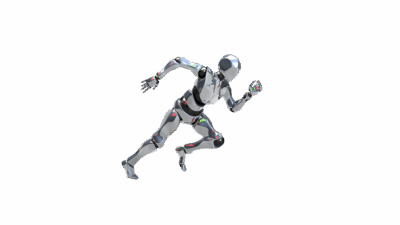In recent years, the rapid evolution of technology has reshaped markets, businesses, and entire industries. From artificial intelligence (AI) to blockchain, these groundbreaking tools are not just buzzwords; they are central to the transformation of various sectors. This article explores the key technologies that are driving change, their applications, challenges, and future implications.
1. Artificial Intelligence (AI)
Overview
AI refers to computer systems designed to perform tasks that typically require human intelligence, such as understanding natural language, recognizing patterns, and making decisions. Machine learning, a subset of AI, allows systems to learn from data and improve over time.
Applications
- Healthcare: AI is revolutionizing diagnostics by analyzing medical images and electronic health records, enabling early disease detection.
- Finance: AI algorithms detect fraudulent transactions in real-time, assess risk profiles, and automate trading.
- Manufacturing: Predictive maintenance powered by AI helps manufacturers avoid costly downtimes by predicting equipment failures before they occur.
Challenges
Despite its benefits, AI faces challenges, including ethical concerns around data privacy, biases in algorithmic decision-making, and the need for transparency in AI models.
2. Blockchain
Overview
Blockchain is a decentralized digital ledger technology that allows data to be stored across a network of computers securely. Its transparency and immutability make it a powerful tool for various applications.
Applications
- Supply Chain Management: Blockchain enhances traceability, allowing companies to monitor the origin and journey of products, improving accountability.
- Finance: Cryptocurrencies such as Bitcoin and Ethereum leverage blockchain for secure transactions. Financial institutions are also exploring blockchain for cross-border payments and smart contracts.
- Voting Systems: Blockchain can provide secure and tamper-proof voting mechanisms, increasing transparency and reducing electoral fraud.
Challenges
The primary barriers to blockchain adoption include scalability issues, regulatory uncertainty, and energy consumption concerns, particularly with proof-of-work systems.
3. Internet of Things (IoT)
Overview
IoT connects everyday devices to the internet, enabling them to send and receive data. This interconnectivity increases efficiency and provides valuable insights.
Applications
- Smart Cities: IoT technologies are used for traffic management systems, waste management, and energy conservation, leading to improved urban living conditions.
- Agriculture: Farmers deploy IoT sensors to monitor soil conditions and crop health, optimizing resource usage and boosting yields.
- Healthcare: Remote patient monitoring using IoT devices helps healthcare providers track patients’ health data without requiring in-person visits.
Challenges
IoT faces concerns around security, data management, and the integration of devices from different manufacturers.
4. 5G Technology
Overview
5G is the fifth generation of mobile networks, boasting significantly faster data speeds, reduced latency, and increased connectivity.
Applications
- Autonomous Vehicles: 5G enables real-time communication between vehicles and infrastructure, enhancing safety and efficiency in transportation.
- Remote Work and Collaboration: Enhanced connectivity facilitates remote work and virtual collaboration, allowing teams to work more effectively regardless of location.
- Telemedicine: 5G supports high-definition video consultations and remote surgeries, fundamentally changing how healthcare is delivered.
Challenges
The deployment of 5G requires substantial infrastructure investment and the resolution of regulatory hurdles in various countries.
5. Quantum Computing
Overview
Quantum computing leverages the principles of quantum mechanics to process information at unprecedented speeds. While still in its infancy, the technology promises to solve complex problems that are currently beyond the reach of classical computers.
Applications
- Pharmaceuticals: Quantum computing can accelerate drug discovery by simulating molecular interactions.
- Cryptography: It has the potential to revolutionize data encryption methods, presenting challenges and opportunities for cybersecurity.
- Operations Research: Complex optimization problems in logistics and supply chain management can be solved more efficiently.
Challenges
Quantum computing faces significant technical hurdles, including error rates in qubits and the need for stable operating conditions.
Conclusion
As we advance into an increasingly technology-driven future, the convergence of AI, blockchain, IoT, 5G, and quantum computing stands to reshape industries profoundly. While these technologies promise significant benefits, their adoption will require navigating complex challenges and ethical considerations. Businesses that harness their potential will not only gain a competitive edge but also play a vital role in shaping a sustainable and equitable future. As the landscape continues to evolve, staying informed and adaptable will be crucial for organizations aiming to thrive in this dynamic environment.



